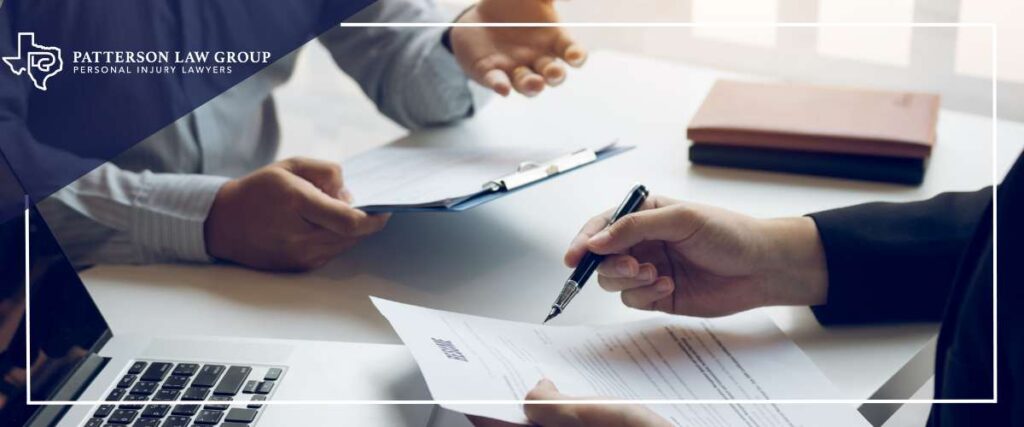A deposition can sound serious and scary, especially if you’re unsure what it means.
Depositions are important parts of the legal process and play a key role in personal injury cases. When you speak to your personal injury attorney in Fort Worth, they will likely mention a deposition at some point.
A deposition is when lawyers for each party ask questions before a trial. During the deposition, everything is recorded, and the person being questioned is under oath.
Having a deposition helps both sides prepare for trial.
Here, you can learn more about depositions and how they can benefit your personal injury claim.
The Role of a Deposition in Injury Cases
The primary function of depositions is to collect important information. This information-gathering phase is vital before the court proceedings begin.
It allows both parties to understand potential testimonies and the specifics of the opposing case, avoiding surprises during the trial.
How Depositions Aid in Legal Strategy and Settlements
The question-and-answer session during a deposition is designed to extract as much relevant data as possible. This phase is not just about gathering facts but also about shaping the course of the case.
The strength of the gathered evidence may encourage a party to settle before the matter goes to trial, thus hastening the resolution process and serving everyone’s best interest.
Assessing Witness Credibility and Preparing for Trial
One of the unique advantages of depositions for personal injury attorneys in Fort Worth is the chance to assess how witnesses will likely fare in front of a judge or jury. Witness responses, their mannerisms, and recollection capabilities during a deposition provide invaluable insights. These insights are crucial for attorneys to devise an effective approach to the case.
The deposition serves multiple purposes—it’s a tool for discovery, a strategy enhancer, and, occasionally, a means to a quicker case resolution. Understanding these aspects can alleviate clients’ apprehension about the legal process.
Common Questions Asked During a Deposition
The questions posed during a deposition can vary widely, but they all serve the purpose of uncovering valuable information for the case. If you’re working with a Fort Worth accident attorney, you might encounter some common questions.
These can range from basic inquiries about your background to detailed queries regarding the incident.
Personal Background Questions
These questions aim to establish the identity and background of the witness. They might include:
- What is your full name and age?
- Can you describe your educational background and current employment?
- Do you have any prior medical conditions or injuries?
Incident-Specific Questions
This section focuses directly on the event that led to the legal action. Possible questions might look like:
- Can you provide a detailed account of what happened on the day of the incident?
- What were the weather and lighting conditions like at the time?
- Did you notice anything unusual or out of the ordinary right before or after the incident occurred?
Impact and Damages
In personal injury cases, understanding the aftermath of the incident is crucial. Questions here could include:
- What types of injuries did you sustain from the incident?
- How has this affected your daily life, including work and personal activities?
- Have you received medical treatment for your injuries, and what was the nature of that treatment?
These samples showcase how depositions drill down into a case’s specifics, allowing your personal injury attorney in Fort Worth to gather crucial information. This foundational phase enables both sides to build their case effectively, potentially leading to settlements or better preparation for trial.
Next Steps Following a Personal Injury Deposition
Several things will happen after the deposition stage in a personal injury case as your case moves toward a resolution.
Review and Discovery Completion
Initially, both legal teams will review the deposition transcripts and any new evidence or information that emerges. This review helps identify any gaps in the case and determine if further evidence is needed, potentially leading to additional depositions or discovery requests.
Settlement Negotiations
Armed with detailed information from depositions, your personal injury attorney in Fort Worth may begin settlement negotiations with the opposing party. If the deposition evidence strongly favors one side, it could lead to a settlement, avoiding the need for a trial.
Pre-Trial Motions and Conferences
If the case does not settle, the next phase typically involves pre-trial motions where lawyers may ask the court to rule on specific legal issues before the trial begins. These motions can impact how the trial is conducted or even resolve the case if, for example, a motion for summary judgment is granted.
Additionally, pre-trial conferences with the judge ensure both parties are prepared for trial and help streamline the upcoming court proceedings.
Trial Preparation
Both sides will intensify their trial preparations, finalizing their arguments and rehearsing their presentations. This preparation includes selecting exhibits for evidence and preparing witnesses for testimony based on insights gained from the depositions.
Understanding the Role of Depositions in Personal Injury Cases
Navigating a personal injury case, especially through the deposition stage, requires in-depth knowledge and strategic foresight, which experienced personal injury attorneys in Fort Worth provide. The deposition helps your attorney gather critical evidence, assess the case’s strengths and weaknesses, and witness testimonies.
Subsequent steps post-deposition, including settlement negotiations and trial preparations, are crucial in steering the case toward a favorable resolution. Understanding each phase of the process helps clients better understand what to expect.











